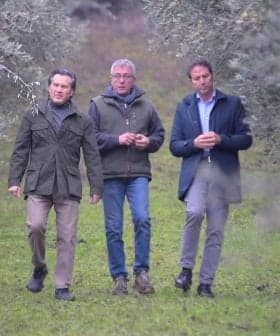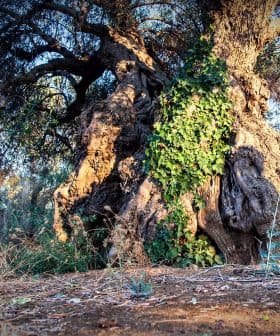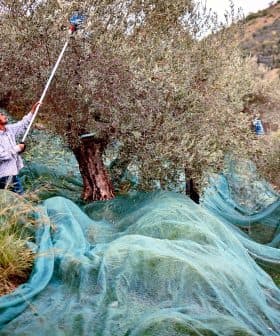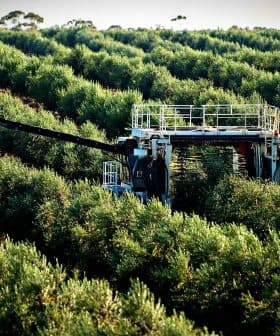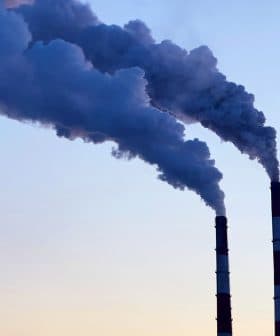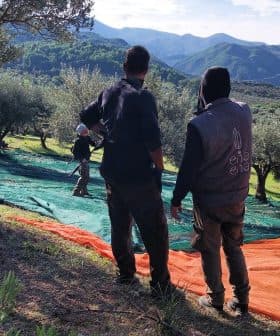Covid-19 Lockdown in Italy Brings Critical Promotion Season to a Standstill
At a time when Italy's agriculture sector was already reeling, the coronavirus lockdown has wiped out major spring events and promotional activities.
The lockdown in Italy due to Covid-19 has had a significant impact on the economic and social life of workers, particularly in the agricultural sector, with major setbacks in production and promotional events for products like olive oil and wine. The quarantine is expected to last until April 3rd, but the recovery process could take months even after it is lifted, leading to rescheduling or cancelation of many events and competitions in the agricultural industry.
With Italy in lockdown to halt the spreading of the coronavirus Covid-19, the impact of the new containment measures on the economic and social life of workers of nearly every sector here is enormous.
We will still need months to recover and go back to normal life. And that is the best scenario.
Under huge strain even before the first outbreak of the virus, Italian agriculture is now suffering major setbacks both in production and in the many relevant promotional events scheduled in March and April for its most celebrated products, such as olive oil and wine.
Those events, all of them, were either rescheduled or canceled altogether. The quarantine imposed by Rome is set to last until April 3rd, but the government has already warned its citizens that it could last longer.
“The worst thing is that should the quarantine really be lifted in April, we will still need months to recover and go back to normal life. And that is the best scenario,” Alessandro Notario, a manager of agricultural events told Olive Oil Times.
At the beginning of March, Rome would have hosted an event focusing on olive oil that many producers and marketers had been waiting for. The long-planned Pop-Olio was meant to serve as a promotional and cultural happening to reaffirm the importance of olive oil as a central component of the Mediterranean way of life.
Organizers said it was to be the first fair of its kind, with tasting challenges, well-known international guests, production workshops and more.
Then Covid-19 happened and changed everything. They couldn’t reschedule due to the many factors involved, even if the end of the outbreak were in sight, which it isn’t. “It will not be easy to find a new date for such a complex and ambitious fair,” Notario noted.
The quarantine has wiped out a critical season usually dedicated to marketing and promotional activities necessary to move the year’s olive oil supply.
National competitions where Italian producers compete to help differentiate their brand in the marketplace are in limbo.
One producer who had registered his brand in the 2020 NYIOOC World Olive Oil Competition said he was unable to send his samples to be judged since there was no one in their office to ship them. (NYIOOC organizers said the vast majority of Italian entrants had dispatched their samples before the lockdown and the balance could still make the May 1st deadline.)
An event in Florence, Maestrod’Olio, was meant to focus on extra virgin olive oil production and the significance of traditional organic olive oil for Italian culture. It was to be a three-day fair starting March 14th. After it was announced that a lockdown would be imposed on all 60 million Italians, the organizers announced the event would be rescheduled for some time in 2021.
“Nobody knows when we will be out of it and it is certainly advisable to postpone any event for several months, even to next year,” said Notario. Losses can prove to be huge for producers and promoters alike, and not everyone in these challenging days seemed eager to wait that long.
When the first virus outbreak hit the news, organizers of the famous international event Vinitaly held on to their originally-planned date in April, but then Covid-19 kept spreading like no virus has done before and they eventually decided to reschedule for next June — a decision that in turn pushed other organizations to postpone their related events in those weeks.
The coronavirus has hit Italian agriculture at its heart. Spring is coming and the many seasonal workers from abroad will not be able to work in Italy in one of the busiest seasons for the sector.
Farmers and growers from north to south expressed their worries. The farmers’ association Coldiretti issued a statement asking supermarkets to favor Italian agricultural products.
“We ask all food resellers to adhere with their choices to the campaign #EatItalian, putting on their shelves mozzarella made out of Italian milk, ham coming from our farms, true Italian extra virgin olive oil,” said the association president Ettore Prandini.
“Italian agriculture accounts for a quarter of the Italian GDP and employs 3.8 million people. The whole food chain must act to protect this value.”


